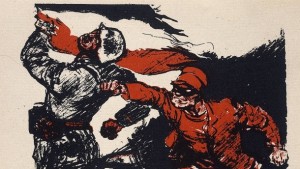 In the current issue of Central European History, Jochen Hung reviews new literature on the history of the Weimar Republic, focusing on the often-used “plot” of Weimar’s cultural modernism juxtaposed with its democratic breakdown: “More than thirty years ago, Eberhard Kolb commented that the vast wealth of research on the history of the Weimar Republic made it “difficult even for a specialist to give a full account of the relevant literature.” Since then, the flood of studies on Weimar Germany has not waned, and by now it is hard even to keep track of all the review articles meant to cut a swath through this abundance. Yet the prevailing historical image of the era has remained surprisingly stable: most historians have accepted the master narrative of the Weimar Republic as the sharp juxtaposition of “bad” politics and “good” culture, epitomized in the often-used image of “a dance on the edge of a volcano.””
In the current issue of Central European History, Jochen Hung reviews new literature on the history of the Weimar Republic, focusing on the often-used “plot” of Weimar’s cultural modernism juxtaposed with its democratic breakdown: “More than thirty years ago, Eberhard Kolb commented that the vast wealth of research on the history of the Weimar Republic made it “difficult even for a specialist to give a full account of the relevant literature.” Since then, the flood of studies on Weimar Germany has not waned, and by now it is hard even to keep track of all the review articles meant to cut a swath through this abundance. Yet the prevailing historical image of the era has remained surprisingly stable: most historians have accepted the master narrative of the Weimar Republic as the sharp juxtaposition of “bad” politics and “good” culture, epitomized in the often-used image of “a dance on the edge of a volcano.””
 ARIADNE, the journal published by the Archive of the German Women’s Movement, is inviting contributions for a special issue on the “female history/ies of the Weimar Republic”. The editors aim to present the different female lifestyles and social realities and ask which role women played in the new state.
ARIADNE, the journal published by the Archive of the German Women’s Movement, is inviting contributions for a special issue on the “female history/ies of the Weimar Republic”. The editors aim to present the different female lifestyles and social realities and ask which role women played in the new state.
 In August 2016, the Friedrich Schiller University in Jena established the
In August 2016, the Friedrich Schiller University in Jena established the 





